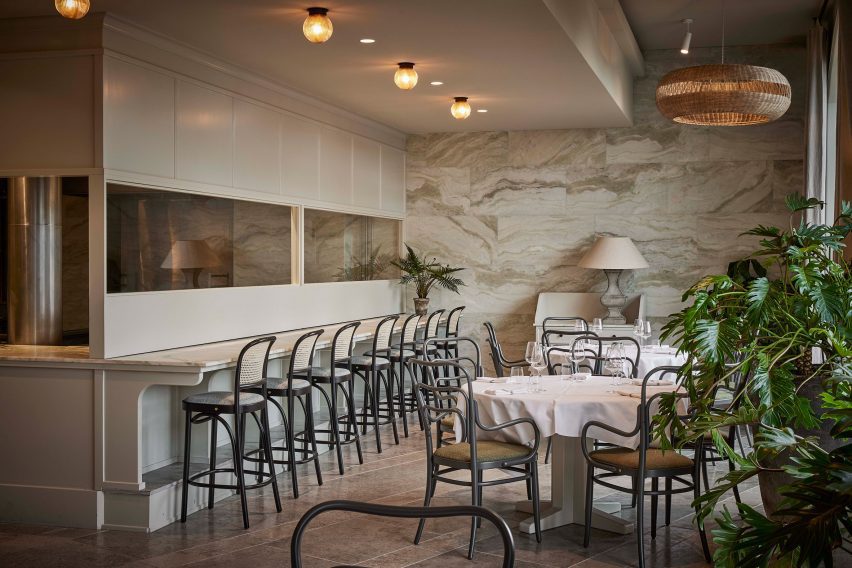
Space Copenhagen designs Esmée restaurant as "urban orangery"
Design studio Space Copenhagen has combined a classic brasserie with a courtyard feel in its design for a restaurant in the heart of Copenhagen.
Esmée is located on Kongens Nytorv in the space previously occupied by Geist, a restaurant designed by Space Copenhagen back in 2011 but which closed down earlier this year.
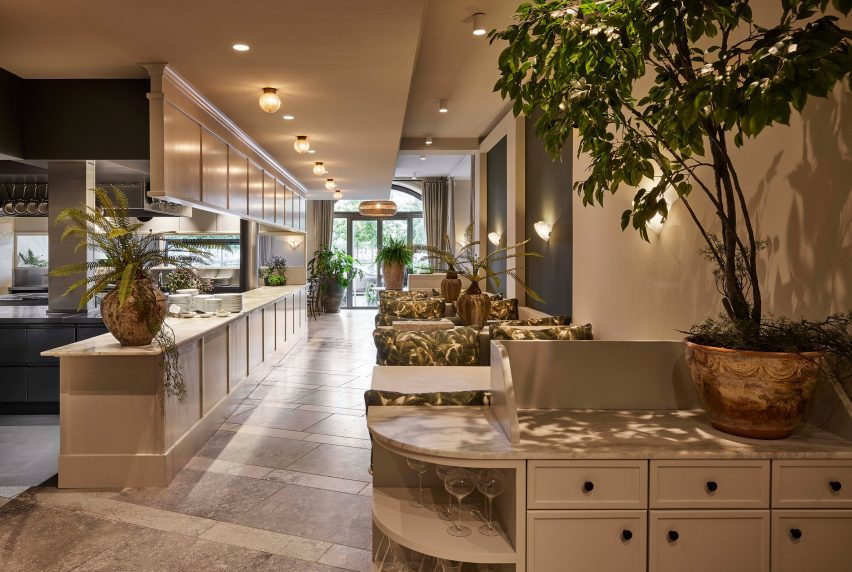
Designers Signe Bindslev Henriksen and Peter Bundgaard Rützou decided to this time adopt a lighter aesthetic for the space, with pale tones, natural materials and lots of plants.
Their aim was to offer a sense of optimism as Denmark's hospitality industry recovers from the closures brought on by the Covid-19 pandemic.
"Returning to a place we have designed before is both humbling and challenging," said Bundgaard Rützou.
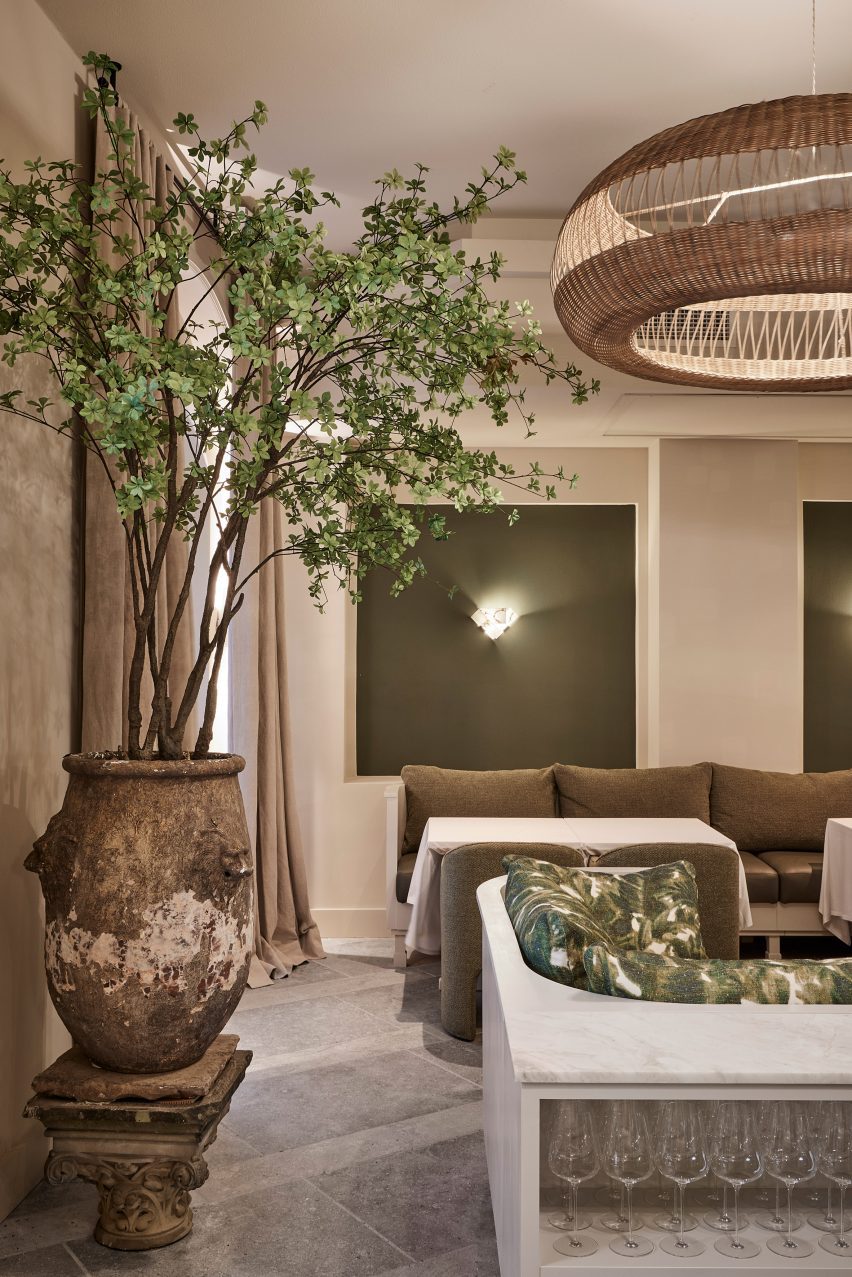
"We wanted to respect the beautiful Kongens Nytorv space but completely reinterpret it and see it through new eyes," he continued.
"We feel that the design of Esmée has a real sense of joy and celebration about it, which really feels right for these times."
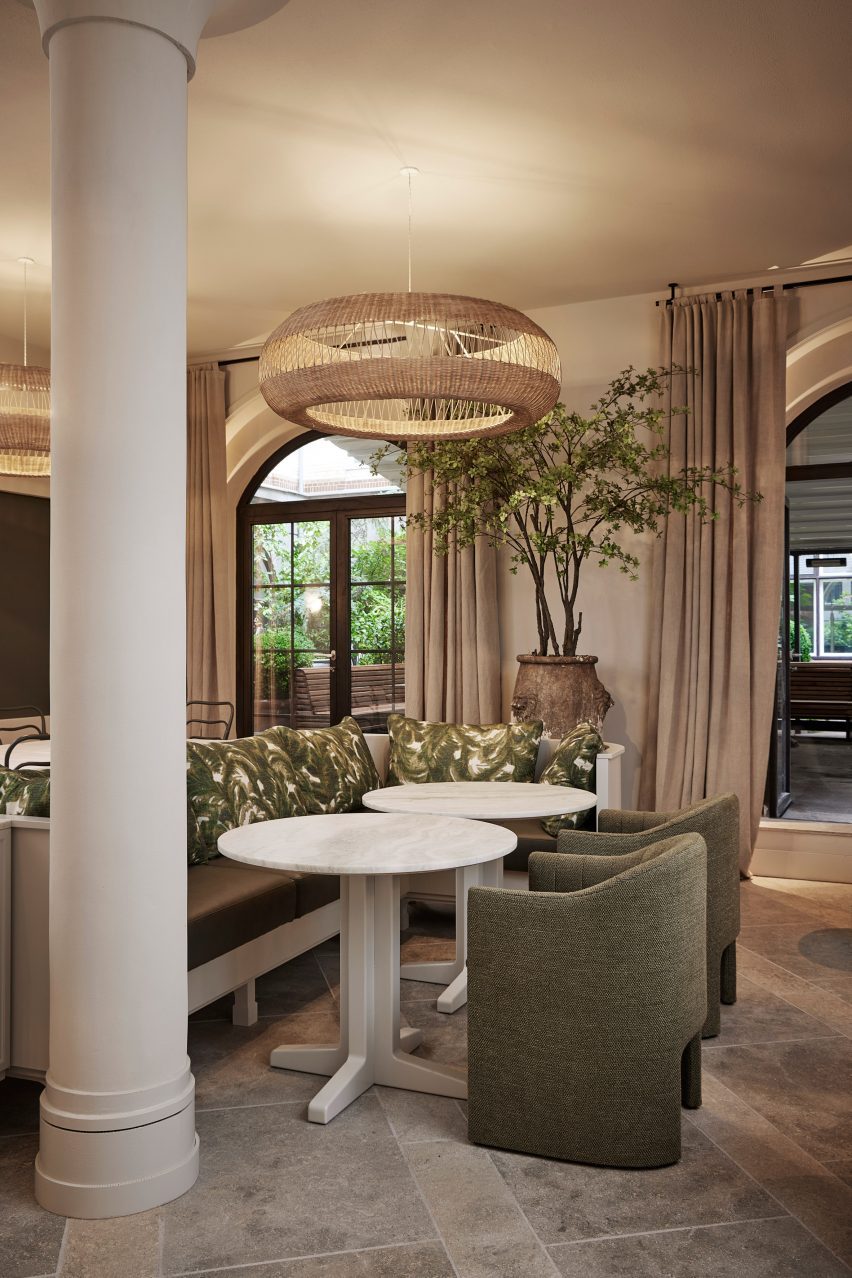
Greenery is the central focus of the design for Esmée. Plants and trees feature through all the spaces and are arranged at different heights, which brings additional emphasis.
The designers also chose green and leaf-patterned textiles for some of the furniture pieces, while some of the wall panels are picked out in a deep fern-green shade.
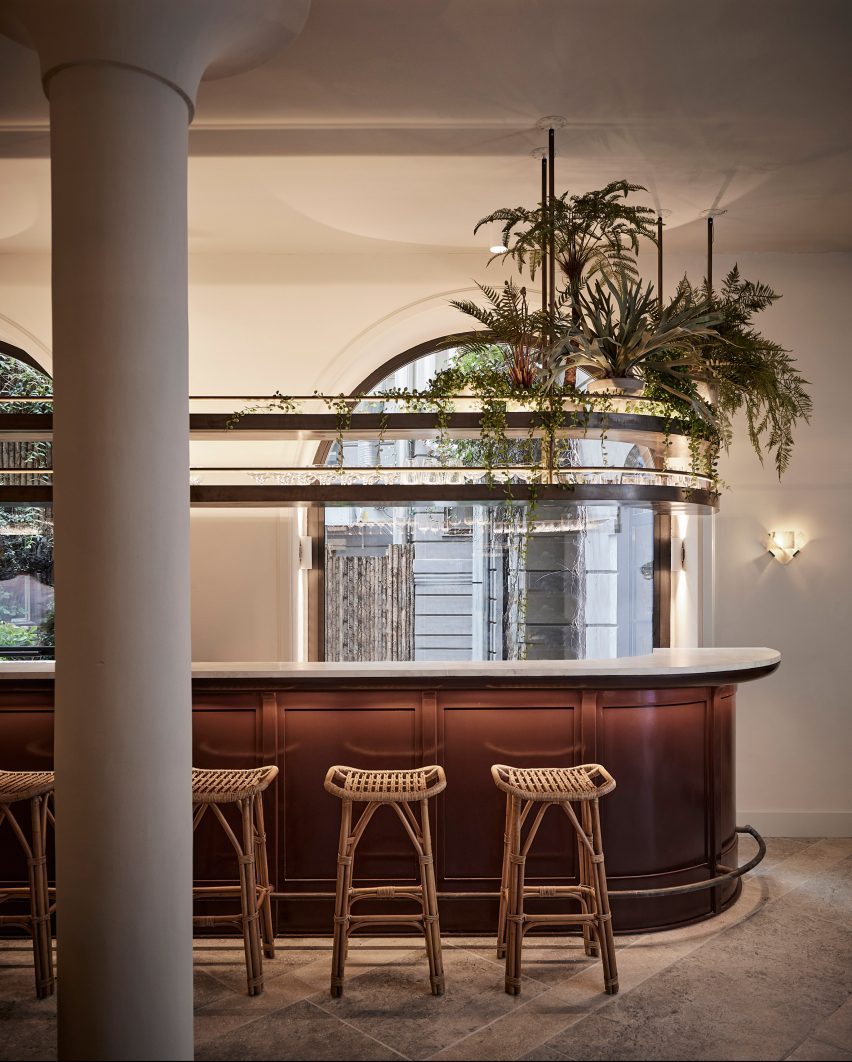
"For Esmée we wanted to create the feeling of a fun, lively, urban orangery by bringing the verdant courtyards into the space and by using a lot of plants and trees throughout," said Bindslev Henriksen.
"In addition, the use of the colour green in a multitude of shades, both on the walls and on the upholstery has created a light and naturalistic tapestry."
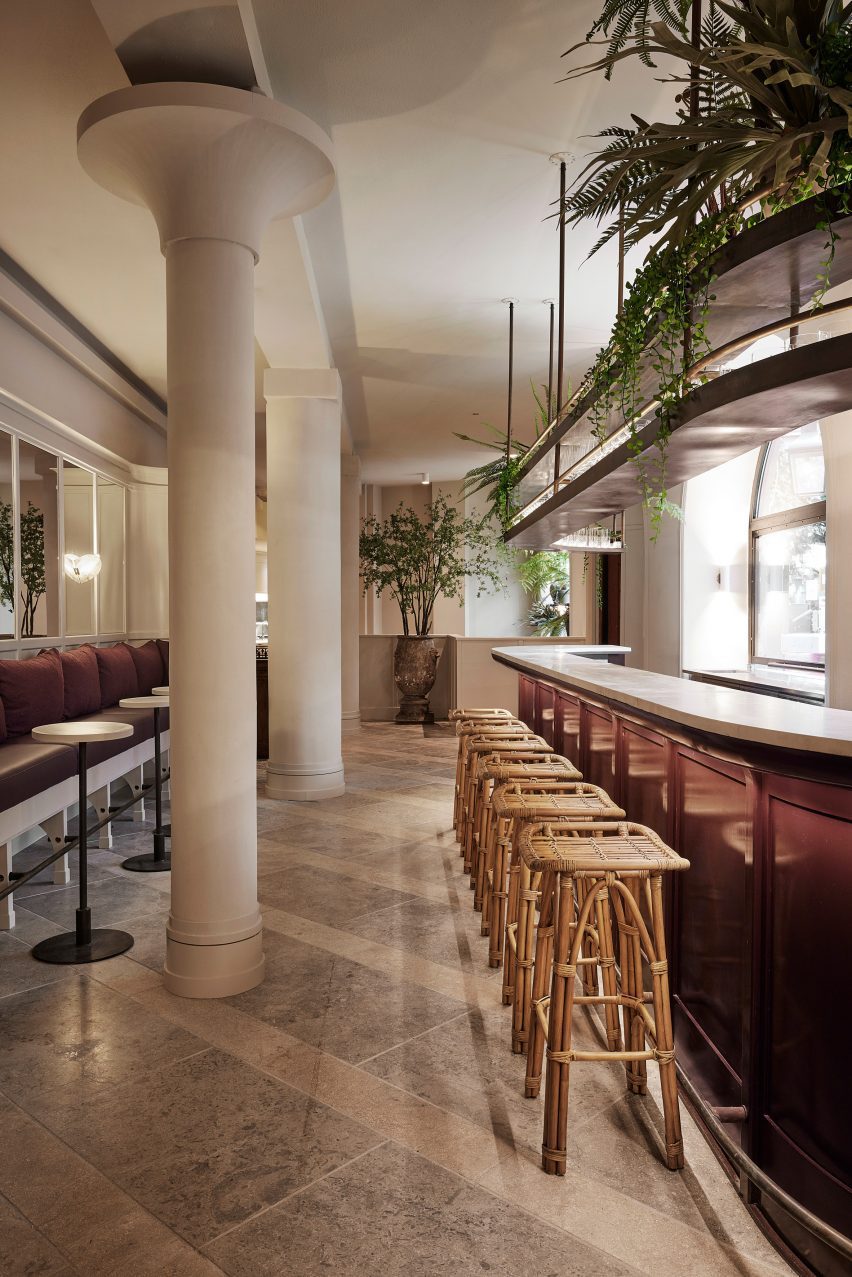
Different areas have their own character, thanks to focal furniture pieces and colours.
The bar area has a slightly darker palette. The bar itself features a stone countertop and a wood-panelled frontage with a high-gloss, plum finish.
Its curving form is mirrored by a ceiling-mounted storage unit, which is filled with both glasses and plants.
Nearby seating is upholstered in matching plum leather, while the walls behind feature the Fly Wall Lamp, a 1920s design by French architect Pierre Chareau that has been reissued.
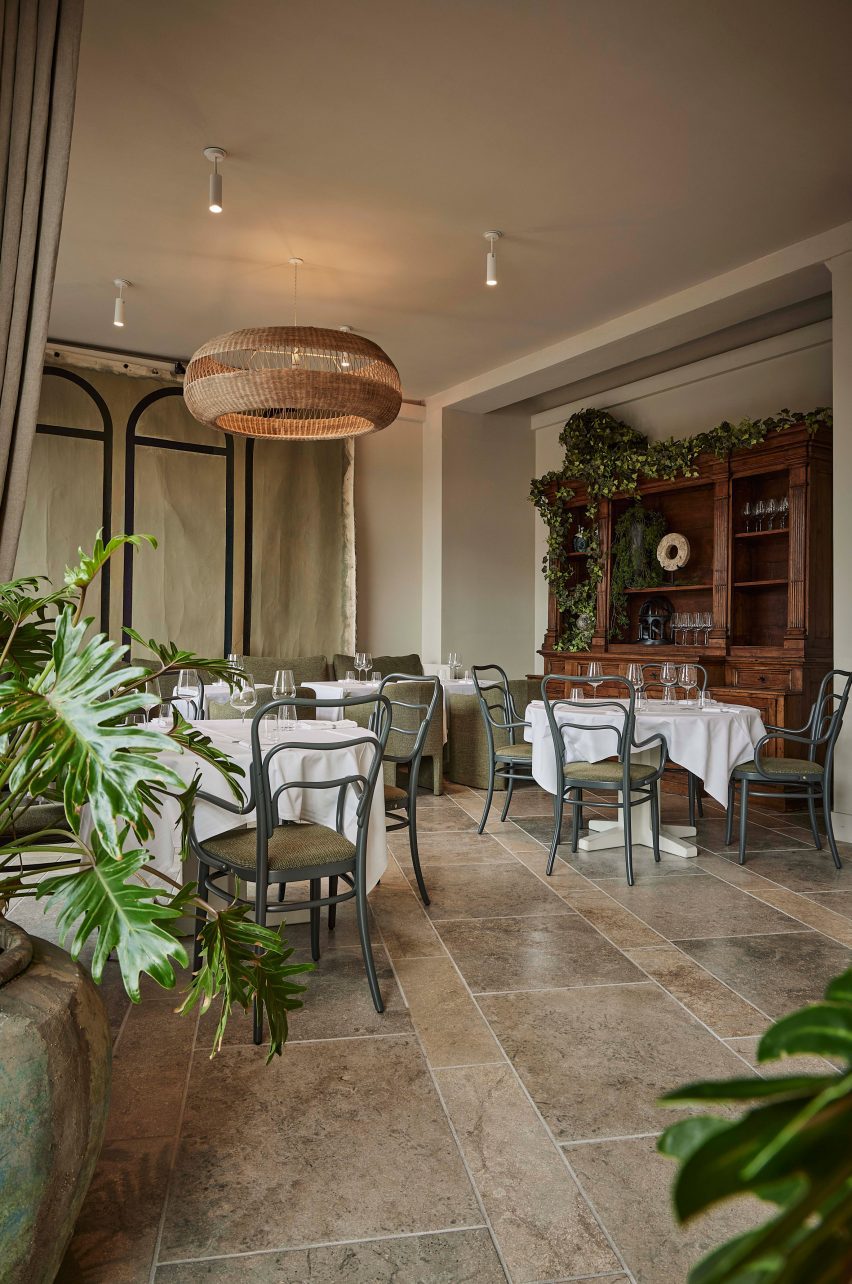
Oversized wicker lights set the tone for the dining areas. Furniture here is provided by Space Copenhagen's Loafer Chairs, which are produced by &Tradition, and the Vienna 144 chairs by Gebrüder Thonet.
One of the main highlights is a vintage Italian cabinet, sourced with help from Studio Oliver Gustav, which features in a room that can be used as a private dining space.
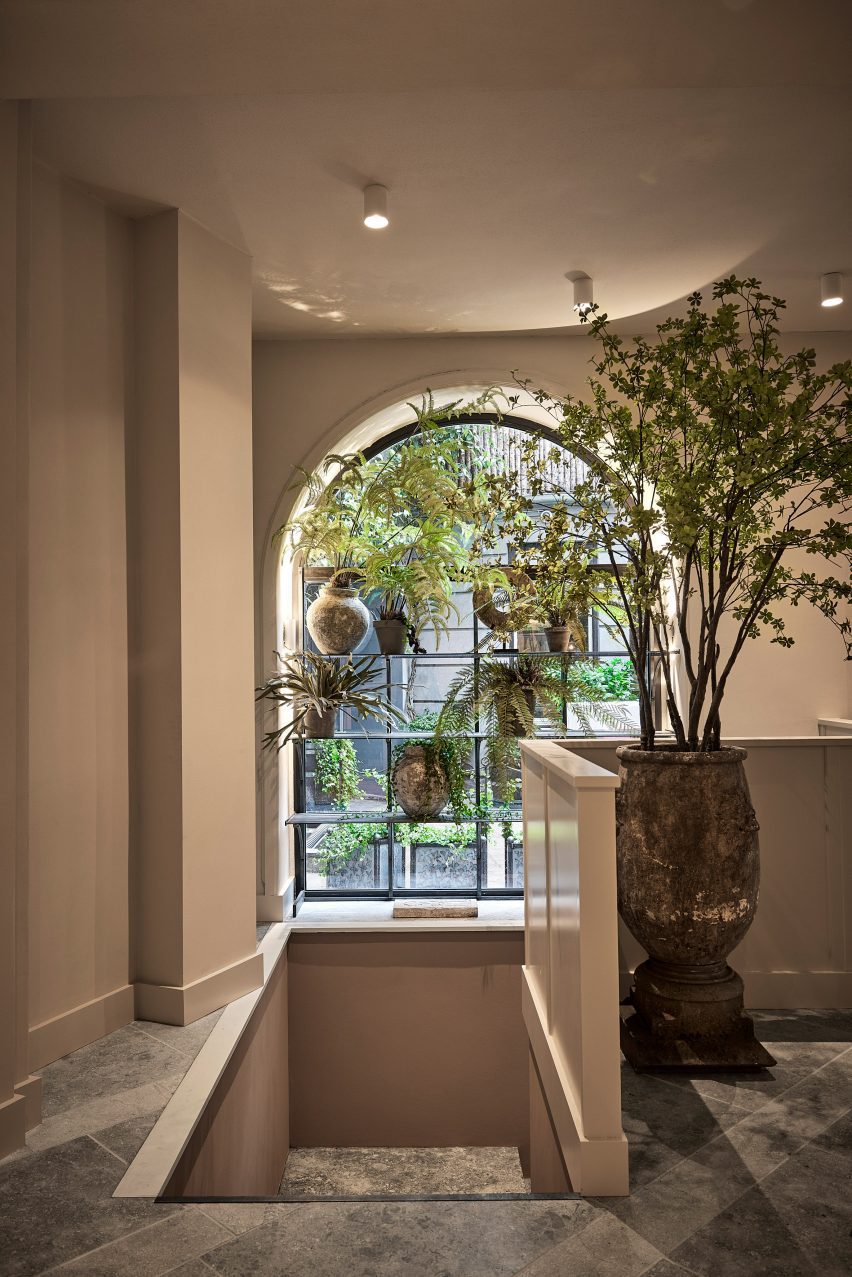
Subtle patterns add depth to the scheme throughout, for instance, stone floor tiles are arranged in monochrome stripes and marble-effect paint has been applied to a selection of wall panels.
The restaurant also features a large courtyard for outdoor dining, organised around a U-shaped layout of hardwood benches.
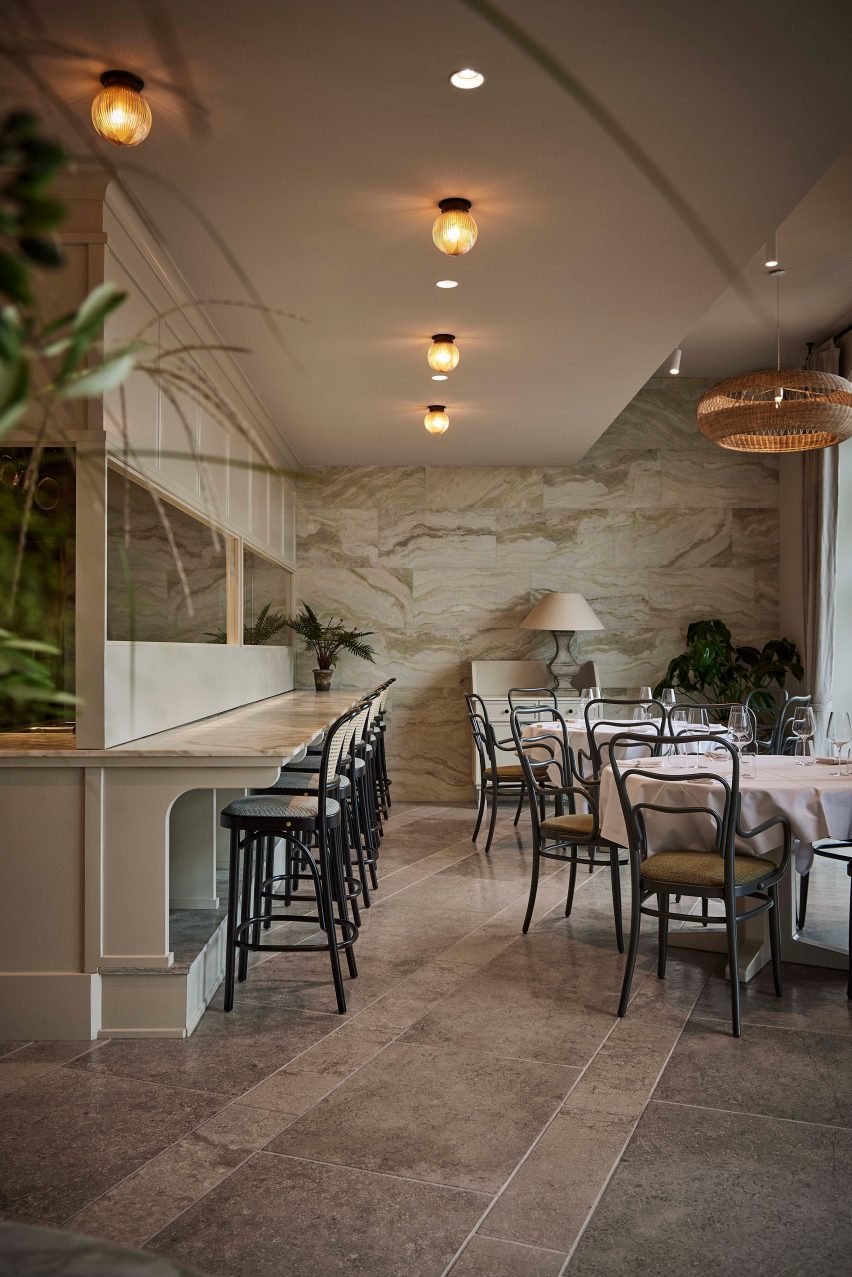
Space Copenhagen is best known for its work in the hospitality industry, having worked on a number of high-end restaurants and hotels.
Elsewhere in the Danish capital, the studio was behind the revamp of Arne Jacobsen's iconic Royal Hotel and previously created an interior for legendary restaurant Noma.
Esmée was designed for Andreas Bagh, whose menu puts a modern spin on classic French brasserie dishes.
Photography is by Wichmann + Bendtsen.